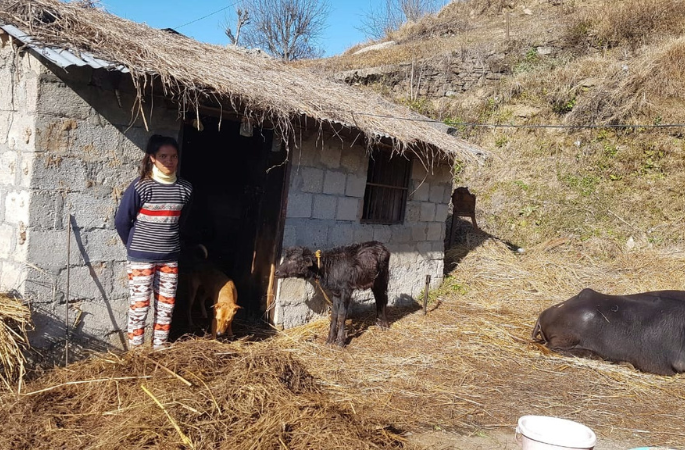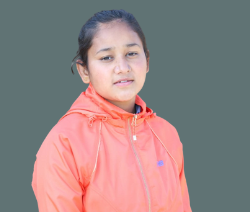Renu was about to start her day on a bright morning when she got her monthly periods. All her plans for the day, including the next five days, were shattered because she had to confine herself in the cowshed and live and eat there until her periods were over. She spends six days every month and seventy-two days a year in the cowshed. “Whether the cowshed is near or far, whether there is electricity in the cowshed or not, whether the cow in the cowshed is aggressive or meek, while menstruating, we have to spend every minute in there,” expressed Renu.
The arrangement for bathing is even more dreadful. These days, Renu is not allowed to use the family washroom and has to wake up at 4 in the morning to go to the river and take a bath. “Be it summer or winter, I have to wake up early and head to the river for a bath. No matter how far the river is, I am allowed to bathe only there,” she lamented. As far as the food is concerned, it is served in different dishes reserved for use during menstruation.
Renu is a resident of Jagthana village in the Kapkot block of Bageshwar district in Uttarakhand, India. 16-year-old Mala Daanu from the same village has to follow this custom and silently endure the trouble that comes with it. “My stomach aches a lot while menstruating, but I don’t express it to anyone as I feel shy. Also, everyone stays in the house, and it’s just not feasible for me to reach my mother while I am in the cowshed with period cramps,” she said. Mala says no one in her house has provided any guidance on menstruation. They are bound to follow the age-old practices.
“I feel very scared to walk alone to the river to take a bath early in the morning, but I am compelled to do it,” Mala added. Likewise, 18-year-old Bhavna, another girl from the village, not only stays alone in the cowshed while menstruating but is also not allowed to touch anything.
As per a study titled ‘Social Taboos and Menstrual Practices in the Pindar Valley’ published in 2019, over 90 per cent of women and girls in the Bageshwar district live separately in the cattle shed (locally known as goth) along with the cows and buffaloes when they get their periods. Only 6.25 per cent have access to a separate room within the house. This horrible tradition affects girls physically and mentally and takes a huge toll on their education.
Neelu Shah, a teacher at a primary school and a resident of Pothing village in Kapkot block of Bageshwar district, pointed out that adolescent girls often skip school and therefore lag in studies due to menstruation. “Many times, an adolescent girl quits school, fearing that if they suddenly start menstruating, it will lead to a big problem, and everyone will blame her for it. The women of the family also harass them mentally instead of supporting them at such times, because of which the girls think it’s better to quit school,” said Neelu.
The locals religiously believe in menstrual seclusion. According to them, not following these traditions will bring misfortune to their families and village as the gods will get angry. Nobody wants to pay the price. Malti Devi, an elderly woman from Khaibagad village, finds it absolutely compulsory and appropriate for girls and women to stay separately during menstruation. “It is related to tradition and faith, which should not be abandoned. We don’t want to suffer the consequences of not following it,” asserted Malti.
But while following such inhuman traditions, society does not take into account the pain that adolescent girls have to go through. At an age when the girls are supposed to be guided with menstrual hygiene practices, they are banished to the cowsheds, leaving them alone to cope with the most uncomfortable surroundings during menstruation.
On the one hand, the families prevent their daughters from going to school because they fear their safety. But, on the other hand, they are completely fine with compromising their daughters’ safety by sending them alone to the river early in the morning, even during the winters when it is entirely dark. Moreover, when girls and women need easy access to washrooms and a safe and comfortable environment during menstruation, they are driven away to live somewhere unsafe and unhygienic. Hence, how long they have to gamble with their health in the name of tradition continuously is an important question to think about!




leave a comment